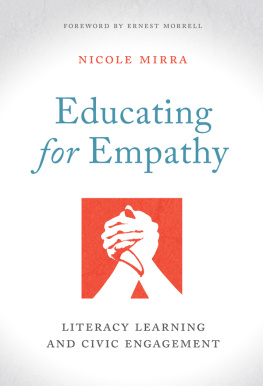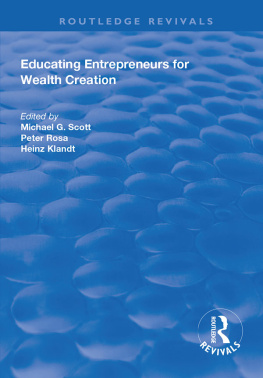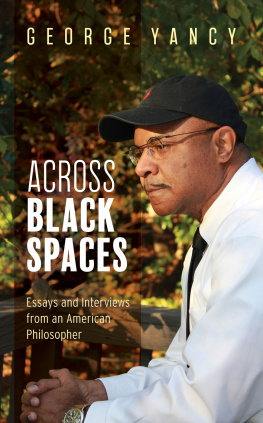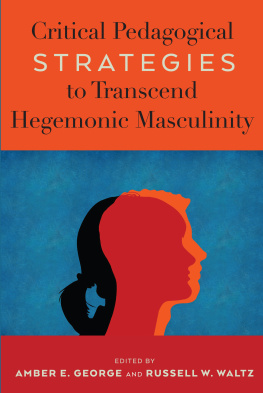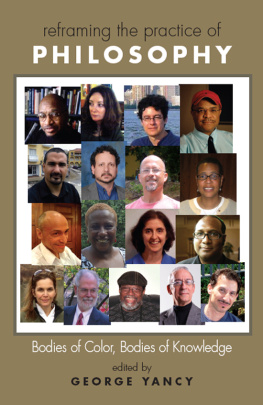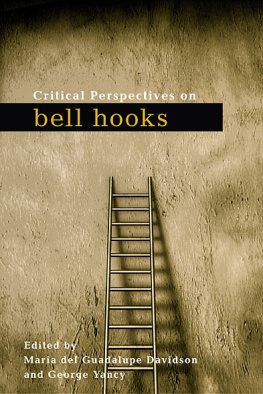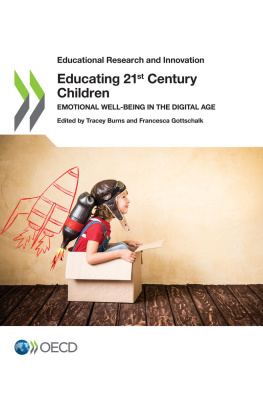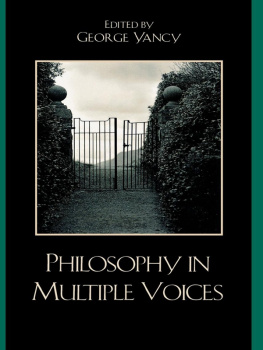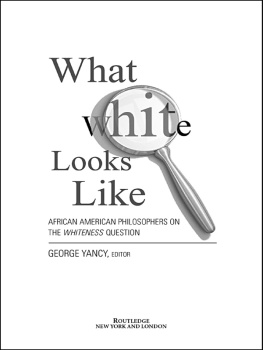Yancy George - Educating for Critical Consciousness
Here you can read online Yancy George - Educating for Critical Consciousness full text of the book (entire story) in english for free. Download pdf and epub, get meaning, cover and reviews about this ebook. year: 2019, publisher: Taylor & Francis (CAM), genre: Politics. Description of the work, (preface) as well as reviews are available. Best literature library LitArk.com created for fans of good reading and offers a wide selection of genres:
Romance novel
Science fiction
Adventure
Detective
Science
History
Home and family
Prose
Art
Politics
Computer
Non-fiction
Religion
Business
Children
Humor
Choose a favorite category and find really read worthwhile books. Enjoy immersion in the world of imagination, feel the emotions of the characters or learn something new for yourself, make an fascinating discovery.

- Book:Educating for Critical Consciousness
- Author:
- Publisher:Taylor & Francis (CAM)
- Genre:
- Year:2019
- Rating:3 / 5
- Favourites:Add to favourites
- Your mark:
- 60
- 1
- 2
- 3
- 4
- 5
Educating for Critical Consciousness: summary, description and annotation
We offer to read an annotation, description, summary or preface (depends on what the author of the book "Educating for Critical Consciousness" wrote himself). If you haven't found the necessary information about the book — write in the comments, we will try to find it.
Educating for Critical Consciousness — read online for free the complete book (whole text) full work
Below is the text of the book, divided by pages. System saving the place of the last page read, allows you to conveniently read the book "Educating for Critical Consciousness" online for free, without having to search again every time where you left off. Put a bookmark, and you can go to the page where you finished reading at any time.
Font size:
Interval:
Bookmark:

This is an outstanding collection of essays, broad in scope and granular in detail. Yancy has assembled leading scholars and public intellectuals as a full-throated and courageous challenge to todays proliferation of neo-identitarian movements, rationalization of the warfare state, militarization of the police, atomization of the public sphere, steady expansion of the surveillance state, defense of US superpower hegemony and militarized state-capitalism augmented by the increasing power of the transnational corporate sector. This book stands as a white rose bursting through the fortress of despair, a gavel thundering through the hallways of history, waking the conscience of the living dead.
Peter McLaren, Distinguished Professor in Critical Studies, Chapman University, and Chair Professor, Northeast Normal University, Changchun, ChinaEducating for Critical Consciousness is an important and necessary response to the intellectual and psychological erosion of American discourse, politics and moral standing in the world. A cultural therapeutic for the return of the repressed.
David Polizzi, Professor of Criminology & Criminal Justice at Indiana State University, USAIn this politically and democratically urgent collection, George Yancy and contributors argue that more than ever, we are in need of classrooms that function dangerouslythat is, classrooms where people are not afraid to engage in critical discussions that call into question difficult political times. Collectively they demonstrate the ways activist authors and scholars must be prepared to engage in risk and vulnerability as a defense of our democratic right to practice forms of pedagogical transgression. Ideal for scholars and students of critical pedagogy, philosophy of education, and political theory, this collection delineates the necessity of critical consciousness through education, and provides ways of speaking back against authoritarian control of imaginative and critical capacities.
George Yancy is Professor of Philosophy at Emory University and Montgomery Fellow at Dartmouth College. He is the author, editor, and co-editor of over 20 books and is known for his influential essays and interviews in the New York Times philosophy column The Stone.
CRITICAL SOCIAL THOUGHT SERIES
Series Editor: Michael W. Apple, University of WisconsinMadison
Mapping Corporate Education Reform
Power and Policy Networks in the Neoliberal State
Ed. by Wayne Au and Joseph J. Ferrare
The End of Public Schools
The Corporate Reform Agenda to Privatize Education
David Hursh
The Critical Turn in Education
From Marxist Critique to Poststructuralist Feminism to Critical Theories of Race
Isaac Gottesman
The Struggle for the Soul of Teacher Education
Kenneth M. Zeichner
College Curriculum and the Crossroads
Women of Color Reflect and Resist
Ed. by Kirsten T. Edwards and Maria del Guadalupe Davidson
Educating for Critical Consciousness
Ed. by George Yancy
For more information about this series, please visit: www.routledge.com/Critical-Social-Thought/book-series/SE0807
Edited by George Yancy

First published 2019
by Routledge
52 Vanderbilt Avenue, New York, NY 10017
and by Routledge
2 Park Square, Milton Park, Abingdon, Oxon, OX14 4RN
Routledge is an imprint of the Taylor & Francis Group, an informa business
2019 Taylor & Francis
The right of George Yancy to be identified as the author of the editorial material, and of the authors for their individual chapters, has been asserted in accordance with sections 77 and 78 of the Copyright, Designs and Patents Act 1988.
All rights reserved. No part of this book may be reprinted or reproduced or utilised in any form or by any electronic, mechanical, or other means, now known or hereafter invented, including photocopying and recording, or in any information storage or retrieval system, without permission in writing from the publishers.
Trademark notice: Product or corporate names may be trademarks or registered trademarks, and are used only for identification and explanation without intent to infringe.
Library of Congress Cataloging-in-Publication Data
Names: Yancy, George, editor.Title: Educating for critical consciousness / edited by George Yancy.Description: New York, NY : Routledge, 2019. | Includes bibliographical references and index.Identifiers: LCCN 2018060730 | ISBN 9781138363359 (hbk : alk. paper) | ISBN 9781138363366 (pbk : alk. paper) | ISBN 9780429431654 (ebk)Subjects: LCSH: Critical pedagogyUnited States. | EducationSocial aspectsUnited States. | Educational equalizationUnited States. | Discrimination in educationUnited States.Classification: LCC LC196.5.U6 E35 2019 | DDC 370.11/5dc23LC record available at https://lccn.loc.gov/2018060730
ISBN: 978-1-138-36335-9 (hbk)
ISBN: 978-1-138-36336-6 (pbk)
ISBN: 978-0-429-43165-4 (ebk)
Typeset in Bembo
by Newgen Publishing UK
This book is dedicated to all of those who refuse to be adjusted to injustice, hatred, and bigotry.
George Yancy
Stephen Brookfield
Barbara Applebaum
Henry A. Giroux
Becky Thompson
Kimberley Ducey and Joe R. Feagin
William David Hart
Josiah Ulysses Young III
Jennifer Gale de Saxe
Stephen Preskill
Ira Shor
Joy James
Bill Bywater
Kal Alston
Cris Mayo
Kal Alston is a professor of Cultural Foundations of Education and Womens and Gender Studies at Syracuse University. Her various administrative jobs have given her insights into how higher education supports and erodes other cultural institutions. Her work in cultural and media criticism gives her insight into how the romance of education persists in the face of seismic social change. Her students teach her every day.
Barbara Applebaum, Professor in Cultural Foundations of Education at Syracuse University, is trained in philosophy of education. Her research is heavily informed by feminist ethics, feminist philosophy, critical race theory, and critical whiteness studies. Her book, Being White, Being Good: White Complicity, White Moral Responsibility, and Social Justice Pedagogy (Lexington, 2010) complicates the pedagogical challenges of teaching about white complicity. Applebaums published papers have appeared in such journals as Educational Theory, Hypatia, Philosophy of Education, Teachers College Record, and Educational Foundations.
Stephen Brookfield is a white man who was born in Liverpool, England. He has spent his professional life trying to understand how to help adults think critically about their learned ideologies and how to create collaborative yet critical learning spaces. He has done this with multiple organizations, sectors, and groups, including community organizations, non-profits, corporations, media companies, the military, hospitals, and numerous schools, colleges, and universities. As part of this journey he has written, co-authored and edited 18 books on adult learning, teaching, and critical thinking, six of which have won the Cyril O. Houle World Award for Literature in Adult Education (in 1986, 1989, 1996, 2005, 2011, and 2012). He currently holds the title of Distinguished University Professor and John Ireland Endowed Chair at the University of St. Thomas in Minneapolis-St. Paul. Previously he has been a professor at Teachers College (Columbia University), Harvard University, and the University of British Columbia.
Font size:
Interval:
Bookmark:
Similar books «Educating for Critical Consciousness»
Look at similar books to Educating for Critical Consciousness. We have selected literature similar in name and meaning in the hope of providing readers with more options to find new, interesting, not yet read works.
Discussion, reviews of the book Educating for Critical Consciousness and just readers' own opinions. Leave your comments, write what you think about the work, its meaning or the main characters. Specify what exactly you liked and what you didn't like, and why you think so.

